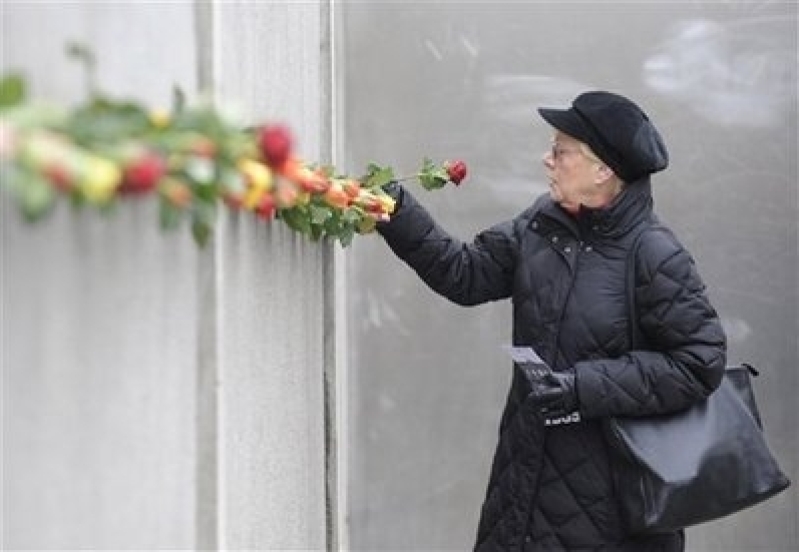
Church leaders paid tribute Monday to the faith and courage of ordinary men and women who helped unify Germany and end the Cold War on the 20th anniversary of the fall of the Berlin Wall.
The newly elected head of the Evangelical Church in Germany (EKD), Bishop Margot Kaessmann, said dream became reality when the wall came down on Nov. 9, 1989.
“Brave women and men from the civil rights movement in the former German Democratic Republic laid the foundation for this day by opposing the regime and inspired many more people to do the same through their example,” she noted, expressing gratitude for the decisive role played by the EKD in the GDR at that time.
“The prayers for peace in overflowing churches will remain in the consciousness as a symbol of a movement that truly earned the name ‘peaceful revolution,’” she commented.
In a message delivered by the head of the World Council of Churches, the Rev. Dr. Samuel Kobia similarly noted how “Christian hope and perseverance contributed significantly to the fall of the Berlin Wall twenty years ago.”
“A movement that started with prayers and candlelight vigils in the Saint Nicholas Church in the center of Leipzig spread all over East Germany and inspired and encouraged people to confront the power of police and secret service in a very effective and peaceful way,” he recalled.
However, while Monday marks a time for celebration, Kobia noted that there are still many walls separating mankind today, such as the demilitarized zone between North and South Korea, the security wall in Palestine, as well as “the walls of injustice, racism and prejudice that separate rich and poor, stigmatize persons suffering from HIV and Aids and destroy the lives of many people”.
“When we celebrate today twenty years of the fall of the Berlin Wall, which marked the end of the cold war era, let us remember the faith and the courage of all those people who gathered in the churches and became the nucleus for the movement of change,” he said.
EKD leader Kaessmann similarly urged believers to remember the historic event, saying that doing so could help bring Europe closer together.
“These events can give us courage for the continuing journey to Europe’s future,” she said. “In spite of all the suffering that dominates our world, Nov. 9, 1989, and the weeks of peaceful mass demonstrations in the preceding autumn will always come to me as a miracle.”
In the Gethsemane Church in Berlin, meanwhile, the head of the German Bishops’ Conference Archbishop Robert Zollitsch called on “East and West to keep building bridges towards one another in patience and perseverance.”
“The memory of Nov. 9, 1989 and no less the memory of the terrible events of the Night of Broken Glass on Nov. 9 (1938, against the Jews), teach us unequivocally: walls – whether real or in people’s heads – do not solve any problems,” Zollitsch said Monday at an ecumenical service. “On the contrary, they create problems. They obstruct the future.”
But he also acknowledged the role they can play for present and future generations.
“They taught us that Christian faith can inspire a resistance movement against fatalism and despair – a lesson which is as important today as it was twenty years ago,” he stated.
Before it fell on Nov. 9, 1989, the Berlin Wall had completely encircled the city of West Berlin for 28 years, separating it from East Germany, including East Berlin. The fall of the Berlin Wall paved the way for German reunification, which was formally concluded on October 3, 1990.






